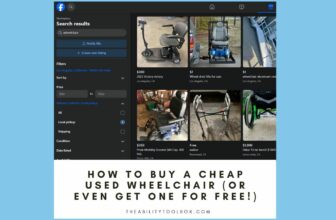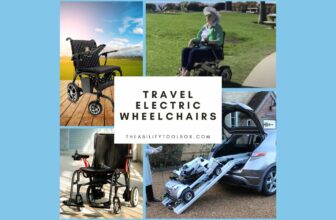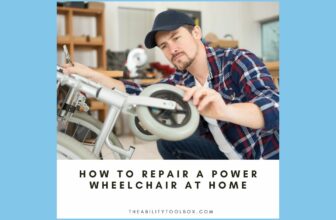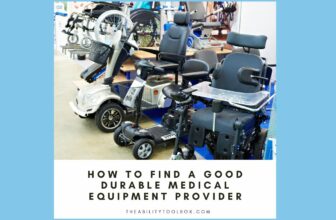As you enter menopause, your body's ability to produce estrogen decreases. It can cause some problems, including osteoporosis. This is a condition where bones become less dense and more fragile.
The good news is there are several things you can do to maintain strong bones during menopause. This article will look at maintaining strong bones during this phase of life.
Understanding Menopause and Bone Health
Menopause is a time of significant change for women. It's also a time when women need to pay extra attention to their bone health.
The onset of menopause can be stressful, with many symptoms and changes that can make it hard to adjust. This affects your mood, sleep patterns, and energy levels. Additionally, it can also cause you to lose bone density at the rate of 20% during the menopausal stage. This is why you must improve your bone health during this period of change.
Risk Factors for Osteoporosis
According to the Osteoporosis Foundation, in the UK alone, around 13 million women are currently going through perimenopause or menopause. This is equivalent to a third of the entire female population in the country. Furthermore, around 21.9% of this population are estimated to have osteoporosis.
The most common risk factors for osteoporosis include the following:
Age
The older you are, the more likely you are to develop osteoporosis. This is because as we age, our bones become less dense and more fragile.
Gender
Women are at higher risk than men because they lose estrogen after menopause. This makes them more susceptible to fractures and breaks in their bones.
Genetics
Genetics plays a big role in whether or not you'll develop osteoporosis. If your parents had the condition, there's a good chance that you will too. And if one of them had it, but not both? Your risk is still higher than if neither of them had it at all.
Race or Ethnicity
Caucasians are more likely than other races to develop osteoporosis. This is due to their higher bone density at birth. Additionally, Caucasians experience earlier onset of menopause which further puts them at risk.
Alcohol Consumption
Drinking too much alcohol can increase your risk of breaking bones. This is due to weakened muscles and poor balance control, leading to falls.
Inactivity
Inactive people are at a higher risk of developing osteoporosis. Your bones need exercise in order to stay strong and healthy, so if you're not getting enough physical activity, it may be a good idea to increase your activity level as much as possible!
Smoking Cigarettes
Smoking cigarettes has been shown to increase the rate at which bone density decreases over time. If you smoke regularly, talk with your doctor about ways that you can quit smoking or reduce the amount that you smoke each day!
Nutrients for Bone Health
Nutrients play a critical role in healthy bone development. The body needs a variety of nutrients to help build and maintain strong bones. It includes the following essential nutrients:
Calcium
Calcium is one of the essential nutrients for strong bones. It makes up about 1% of your body weight and 2/3 of your bone mass.
Calcium helps keep bones strong. As we age, our body's ability to absorb calcium from food sources may decline. This is why it is important to get enough calcium in our diets. When you don't have enough calcium in your diet, your body will try to pull it out of your bones, making them weaker.
Vitamin D
Vitamin D is a nutrient that's essential for healthy bones. It helps improve the structural integrity of bones, making them more resistant to fracture. You can get vitamin D from sun exposure or through food sources like fatty fish like salmon or sardines.
Potassium
Potassium also plays an important role in bone health by helping to maintain the optimal health of your bones and muscles. For example, it can help promote healthy bone formation and prevent osteoporosis.
Magnesium
Magnesium is another nutrient essential for bone health. Magnesium is responsible for creating and maintaining our bones. Bran, whole grains, and green leafy vegetables are some of the foods that are rich in magnesium.
Vitamin K
Vitamin K is a critical nutrient for bone health. It activates some proteins that may play a role in the process of calcium deposition into the bones, including Matrix GLA protein (MGP). MGP is an inhibitor of osteoclastic activity, which helps to slow down bone breakdown by inhibiting osteoclast activity. Thus helping to maintain optimal bone health.
Lifestyle Factors That Promote Bone Health
Bone health is something that's important to all of us, but it's particularly crucial for older women in menopause. As we age, our bones become more fragile and less able to withstand the stress of everyday life.
That's why it's so important to take steps to promote bone health in your lifestyle, and there are lots of things you can do! Here are some lifestyle factors that promote bone health:
Regular Exercise
Regular exercise is one of the best ways to maintain bone health. Exercise helps to reduce the risk of fractures later in life, and it increases muscle strength and lean body mass. Exercise also improves balance and flexibility, which are important for avoiding falls that can cause fractures. Most importantly, exercise helps regulate hormones that benefit bone health.
Weight-Bearing Activities
Weight-bearing activities are essential for healthy bones. If you do not move your body much, your bones are more likely to become weak and brittle. Weight-bearing exercises like brisk walking or jogging can help strengthen your muscles. This also improves muscle tone, which also helps promote overall health.
Getting Enough Sleep
Getting enough sleep is important for many reasons. However, did you know it's also vital to promoting bone health? Scientists have found that sleep deprivation can lead to increased parathyroid hormone (PTH). This causes your body to excrete more calcium and magnesium. This can leave inadequate nutrients for your bones to use, leading to osteoporosis and other bone-related diseases. Try getting at least seven hours of sleep every night to keep your bones strong and healthy.
Nutrition
Nutrition is an important part of keeping your bones healthy. Nutrition promotes bone health, helping you get enough calcium, vitamin D, and protein. Calcium helps your body absorb and use nutrients for strong bones. Vitamin D helps maintain healthy blood levels of calcium and phosphorus. These nutrients are all important for bone health. Additionally, protein helps repair and rebuild bone tissue after injury or stress on the body.
Natural Supplements
Menopause can be a tricky time for women, but menopause supplements that contain natural ingredients such as black cohosh, red clover, and soy can be a real lifesaver when it comes to hot flashes and night sweats. If you're looking for an extra boost, consider adding omega-3 fatty acids, vitamin E, and vitamin D to your supplement routine.
But before you go popping pills like a pro, remember that it's always best to consult with a healthcare professional to ensure you're using these supplements safely and effectively. After all, you want to make sure that you're taking care of yourself in the best way possible.
Maintaining a Healthy Weight
If you're a woman going through symptoms of menopause, maintaining a healthy weight is important for your overall health. Women who are overweight during menopause tend to have more bone loss. This puts them at risk for osteoporosis and other bone diseases. The best way to avoid this problem is by maintaining a healthy weight, putting high importance during menopause. Try to shed some pounds before your body begins its transition to this phase.
Skipping the Sugary Drinks
Skipping sugary drinks is a great way to promote bone health during menopause. Not everyone who is going through menopause will have this issue, but it is something that can happen.
During this time of life, many women experience a change in their hormone levels and will find themselves with low calcium levels in their bones. This can be caused by eating fewer dairy products or not eating enough meat, but it is also the result of eating more processed foods and high sugar content items.
By getting rid of sugary drinks from your diet, you can prevent yourself from getting osteoporosis and other diseases that are caused by calcium deficiencies in the body.
Takeaway
As you can see, there are many ways to maintain strong bones during menopause. The most important thing is to be proactive and take care of yourself. You want to avoid ending up in situations dealing with fractures or osteoporosis.
The best way to do this is by staying active and eating well. Additionally, taking natural alternatives such as Neuaura supplements tailored for women in the menopausal stage may be beneficial.
Talk with your doctor or healthcare provider if you need help. They will help you figure out where to start or what exercise will be best for your body. They will give you recommendations regarding exercises you can try to help keep your bones healthy.
If you're worried about how much calcium is in certain foods and how much protein is in others, don't worry. Plenty of resources can help guide you toward making the right choices for your diet.
Image by ridofranz via Deposit Photos
Follow me down the rabbit hole!
I'm Alice and I live with a dizzying assortment of invisible disabilities, including ADHD and fibromyalgia. I write to raise awareness and end the stigma surrounding mental and chronic illnesses of all kinds.
Dr. Wilson graduated from Rosalind Franklin University of Medicine and Science and completed her residency in Internal Medicine at Advocate Good Shepherd Hospital in Barrington, IL. Dr. Wilson specializes in providing culturally competent and trauma-informed care to patients with physical disabilities. In addition to her private practice, she works as a science communicator, teaching health literacy to middle school and high school students in her local school district.









